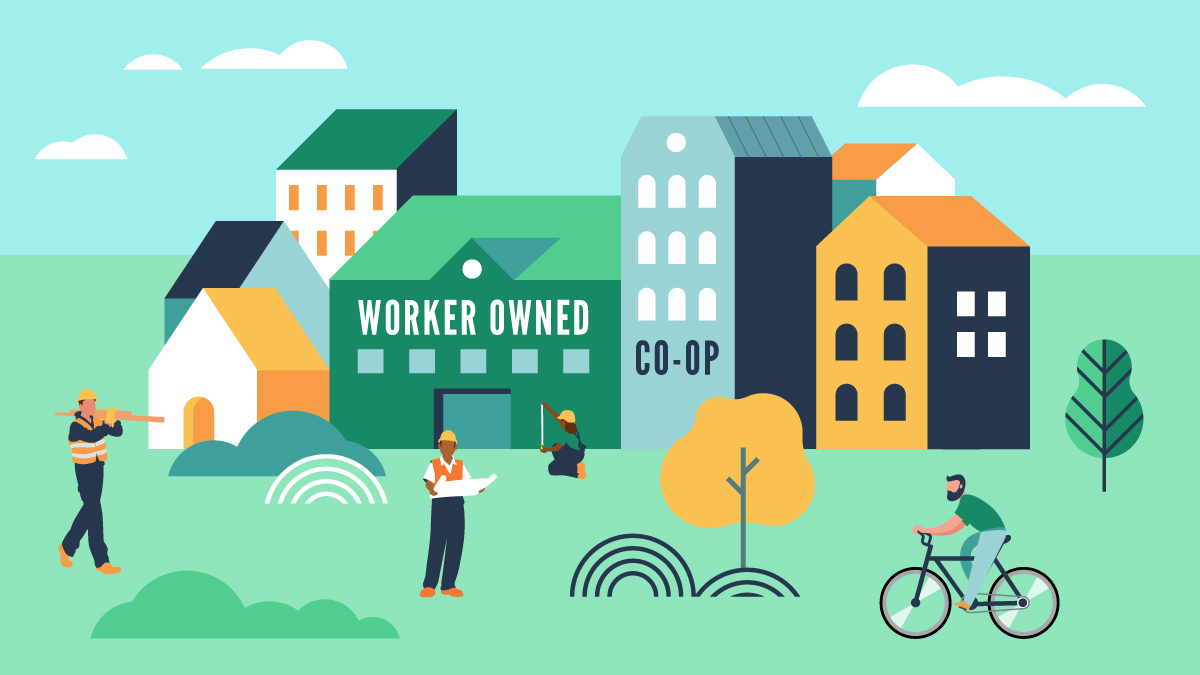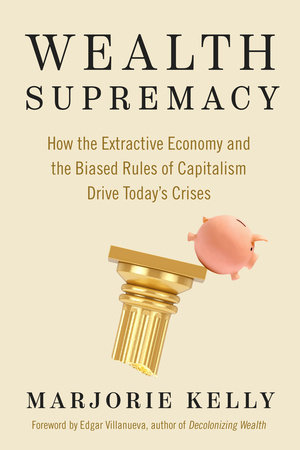From Wealth Supremacy to Community Wealth Building: Models for Democratizing the Economy
Bioneers | Published: August 29, 2024 Eco-NomicsJustice Podcasts
Today’s corporate, capitalist economy is radically unequal, ecologically unsustainable, and embedded in recurring boom-and-bust cycles of crisis. Not surprisingly, people are looking for alternatives. What if, instead of tweaking the system to reduce the damage, we reorganized entirely so that both local and national economies produced better outcomes for people, communities and the planet in the first place?
That’s the essence of community wealth building, the focus of this episode with guest host Laura Flanders, featuring Democracy Collaborative Distinguished Senior Fellow, Marjorie Kelly; Preston City Council Member, Matthew Brown in the UK; and community wealth building adviser to the Scottish Government, Neil McInroy.
This episode is part 2 of a 4-part series exploring how communities are working to transform their local economies by harnessing their assets, anchoring capital and resources locally to directly invest in that place and its people – from land to money and finance. Explore the full series here.
Guest Host
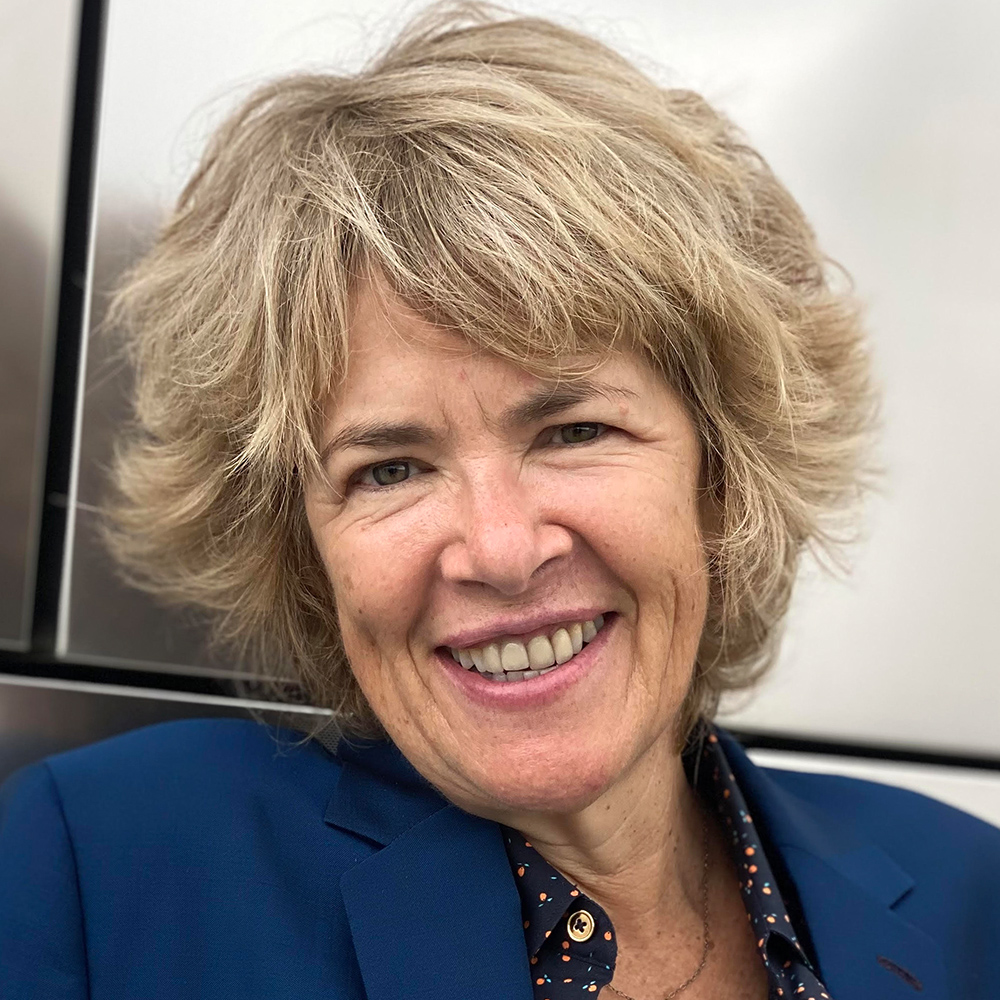
Laura Flanders is the host and executive producer of Laura Flanders & Friends, which airs on PBS stations nationwide. She is an Izzy-Award winning independent journalist, a New York Times bestselling author and the recipient of the Pat Mitchell Lifetime Achievement Award from the Women’s Media Center.
Credits
- This series is co-produced by Bioneers and Laura Flanders & Friends
- Laura Flanders & Friends Producers: Laura Flanders and Abigail Handel
- Production Assistance: Jeannie Hopper and David Neumann
- Executive Producer: Kenny Ausubel
- Senior Producer: Stephanie Welch
- Producer: Teo Grossman
- Host and Consulting Producer: Neil Harvey
- Program Engineer and Music Supervisor: Emily Harris
Resources
Wealth Supremacy: How the Extractive Economy and The Biased Rules of Capitalism Drive Today’s Crises
Action Guide for Advancing Community Wealth Building in the United States | Democracy Collaborative
Gar Alperovitz – Replacing Corporate Capitalism: Why We Need a Next System | Bioneers 2018 Keynote
Our Economic Future: Achieving a More Equitable Society by Radically Rethinking Our Guiding Economic Ideas | Bioneers Reader
Catastrophic Capitalism: Marjorie Kelly & Edgar Villanueva on “Wealth Supremacy”
Full Conversation- Catastrophic Capitalism: Marjorie Kelly & Edgar Villanueva on “Wealth Supremacy”
Marjorie Kelly on the Capitalism Crisis: “Wealth Supremacy” is Killing Us
This is an episode of the Bioneers: Revolution from the Heart of Nature series. Visit the radio and podcast homepage to find out how to hear the program on your local station and how to subscribe to the podcast.
Subscribe to the Bioneers: Revolution from The Heart of Nature podcast
Transcript
Neil Harvey (Host): Today’s corporate, capitalist economy is radically unequal, ecologically unsustainable, and embedded in recurring boom-and-bust cycles of crisis. Not surprisingly, people are looking for alternatives. What if, instead of tweaking the system to reduce the damage, we reorganized entirely so that both local and national economies produced better outcomes for people, communities and the planet in the first place?
That’s the essence of Community Wealth Building. In this episode, we hear from Democracy Collaborative Distinguished Senior Fellow, Marjorie Kelly; Preston City Council Member, Matthew Brown in the UK; and community wealth building adviser to the Scottish Government, Neil McInroy.
This special series is produced in collaboration with Laura Flanders & Friends, which reports on systems change experiments every week on PBS TV stations and online.
This is “From Wealth Supremacy to Community Wealth Building: Models for Democratizing the Economy” with guest host Laura Flanders… on the Bioneers: Revolution from the Heart of Nature.
Laura Flanders (LF): The way we talk about the economy makes it sound as if there’s only one, and it’s a bit like the weather, a naturally – or semi-naturally – occurring phenomenon. But over time, humans have organized society and their economies in lots of different ways. From agricultural societies, with peasants and lords, we moved to industrial ones with robber barons and bosses against workers and unions. From monarchies we moved towards democracies where leaders were chosen, not ordained by birth or divine right.
And along the way, we’ve set all sorts of different priorities. Given the resources we have – people, land, capital, the public purse, is the priority to pay an army to protect us from invaders? Or is it to invest in healthcare, or roads or science in schools? The economy, as we call it, is just a reflection of our priorities – it’s the way we move money around to achieve them. And that’s a matter of human choices.
Today we have an economy with a fundamental systems error. Business observer Marjorie Kelly calls it “wealth supremacy”.

Marjorie Kelly (MK): Wealth supremacy is both a culture and institutions that favor the wealthy. It’s a form of bias. Wealth has the power to influence government, influence philanthropy to control corporations. We live with wealth supremacy in a largely invisible way. We have a sense it’s there, but what I’m trying to do is name it and help us see it.
LF: How did we get here? For the past fifty years, one approach called “neoliberalism” has dominated economic policy making in the West. Neoliberalism is driven by the idea that if people and companies are free to make as much money as they can, that will benefit everyone thanks to the so-called invisible hand of the market.
Under neoliberalism, say these market fundamentalists, we don’t need government to take taxes from the rich in order to help and give services to the poor. We don’t need to regulate working conditions or environmental impacts. Neoliberals believe that the rich will employ more people, buy more things, share their profits and generally do the right thing, if only they are left free to do it. Wealth, in other words, will trickle down like rain.
Except that’s not what’s happened. Instead of money moving around, it’s piled up. And no matter how much tweaking governments have tried to do to make inequality less painful or less extreme, it hasn’t change things. Marjorie Kelly.
MK: Why are things getting worse and not better? And the reason is we failed to touch the essence of the system. We failed to challenge the idea that you can maximize returns to shareholders and maximize gains to our portfolios. And that’s the problem.
LF: In her book, Wealth Supremacy: How the Extractive Economy and The Biased Rules of Capitalism Drive Today’s Crises, Kelly decided to look, not at the effects, but at the very essence of the system we have today. And what she found was an economy that looked very different from the one she’d grown up with. Instead of trickling down to workers and makers, wealth was swirling around in the stock market. Vast profits were being made, but not through producing things or making things. The financialization of the economy was like a casino – money making money off money – and the house almost always wins. I had a chance to talk with Kelly about all of this soon after her book came out in September of 2023.
MK: We’re talking about financial assets. When I was a kid in the 1950s, financial assets, and that’s you know equities and bonds and other forms of debt. Those were roughly equal in the US to GDP. Right? Which is flows of income and spending the
LF: The Gross domestic product.
MK: Right. Gross domestic product. Now, financial assets are five times GDP, but we don’t even count that as inflationary. We think this can grow infinitely forever to any size, and we don’t even view it as a problem. But it is.
LF: Why, I mean, isn’t it good to have more wealth in the world?
MK: Sure. Just like it’s great to drive our cars where we want and to put our thermostats high. I mean, it seems like a good thing, but in the aggregate what happens is it’s extracting too much from the rest of us. I mean, look at, for example, when the big tech firms hit a bump in the road on their share price, the first thing they did was throw thousands of workers out of jobs. There’s a very direct correlation between share price and cutting costs, which generally means cutting labor. Debt is another form of it, families are swimming in debt. We very rarely ask ourselves, who owns that debt? Who’s receiving those payments? And it’s a financial elite and it’s big institutional investors. And so there’s an extraction going on and it’s sapping the resilience of our society.
When you financialize mortgages, basically it’s no longer just a person taking out a loan so that you can pay off your house. You’re bundling them, turning them into derivatives, selling them to investors, and lo and behold, it almost brought down the global economy. Since then, American families have lost more than $7 trillion in equity in their homes. There’s been a lot of foreclosures, but guess who’s buying up those foreclosed homes? It’s big capital. They’re stepping in and now they’re financializing houses, and so they’re bundling houses for investors. And how do they increase their profits? They neglect maintenance, they raise the rents and they pursue aggressive evictions.
LF: In the old days when I studied economics, it was understood that a business as opposed to a farm or something, but it could be a farm, but moving from agrarian economies to industrial ones, from sort of peasants and lords to workers and bosses, we were told that the bosses would have to raise a certain amount of capital. They did that from their friends and relations, they called them stocks and shares. And that capital went into expanding the business, hiring more people, investing in machines, perhaps even, who knows, maybe raising wages. Why doesn’t that happen now? And what’s changed?
MK: You know, we’re not in the economy of the 1950s anymore, and we act as though we are; that finance is this productive force and it’s building wealth. Well, for the most part, it’s not. They’ve become an extractive force. And a big piece of this is that we’re not really distinguishing between productive investments and speculative investments when we’re investing in the stock market. We’re mostly just hoping that the value of those shares will rise. That money is not actually reaching companies and being used in productive ways.
We can see it with private equity too, that they’ll buy newspapers, for example, old age homes or rural hospitals and they’ll cut services and layer debt onto these companies and then write themselves a big check at the private equity firm. So that’s extraction, that’s not building wealth, that’s siphoning off wealth, and we don’t talk about investing that way, but it’s something new that has risen in our time. There’s way too much financial wealth and too little wealth reaching the rest of us. And so we need to turn and look at the design of the system.
LF: Where others had looked at the effects of our economic system, Kelly took that deep look at the design, and she found that not unlike the old “divine right of kings”, today’s economics is built on a series of myths based on a kind of divine right of capital.
MK: I take apart the operating system of capitalism, and I look at seven myths, really, that really drive it. You know, for example, the myth of maximization, the idea that no amount of wealth is ever enough. Bill Gates had $10 billion, which is more money than any of us can even conceive of. What did he do? He invested it. Now he has more than $300 billion. There’s something kind of absurd about that. So much wealth in the hands of one person.
There’s the principle, the myth of the income statement which says gains to capital, which we call profit – this lovely word – have to be always increased and gains to labor, which we call this horrid name expense, have to always be decreased. Well, that’s built into the income statement that every corporation uses. So it’s this tautology of what I call capital bias. That capital is what matters. We’re aiming for more capital and nothing else really matters. That’s the operating system of the economy.
Capitalism is, it’s an ism. It’s like racism and sexism. It’s a bias toward, toward capital. We can still have companies, we can still have investments, but we need to remove capital bias from that system and say, no, this system exists to serve life, people and planet. That’s why it exists. And you can do that.
LF: So what would the economy look like if we organized our priorities differently? For an answer to that question, look at Spain. Often dire conditions produce breakthrough innovations and that’s what happened there in the middle of the 20th century after the Spanish Civil War.
It was under the brutal dictatorship of Francisco Franco, in the Basque region of Northwest Spain, when the region was occupied, and its language, culture and people repressed, that the Mondragon Cooperatives saw their start. A young Catholic priest, called Arizmendiarrieta, came as a kind of missionary – he had a vision for social change based on human dignity and solidarity as a way for meeting human needs, and using the economy as a vehicle for social justice.
The Mondragon Federation of Cooperatives that he helped to start, was founded in 1956 with just a few businesses and a few hundred worker-owners – mostly people who had nothing – neither jobs, nor savings, nor insurance, nor schools. Today, the federation is Spain’s 10th largest business, with well over 80,000 members of staff, as well as its own technical university and a community bank.
I had a chance to visit Mondragon, where I met with factory worker-owners and the people behind a local media co-op that shares Basque-language reporting and news across the region. As Aitor Lagoma, a journalist, and one of the worker owners at GOEINA cooperative, explained, they’ve helped to revive a language that was banned and become a successful business, through cooperation.
Aitor Lagoma (AL): So my name is Aitor and we are in Mondragon, in GOEINA, and we produce a magazine, a newspaper, and even a digital magazine and TV
We started in 70s or before, and this was Franco that was a dictator and the Basque language was banned. So, when Franco dies in the 80s, we needed the Basque language in medias and production and all the things, because we don’t have anything. We just have TV, national TV, but we don’t have anything else like magazines for the people in Basque.
So we are a cooperative working with associations working for Basque language. Many people from here own part of the cooperative and each one owns part of the business. Also to have more power and we work better and we can maybe be stronger.
The people who are living in the towns and even in the cities, it’s more personal. They know what’s happening around them. Good things, bad things, but they have the information. And they take it in Basque. That, for us, is so important.
LF: The Mondragon co-ops didn’t just employ people and give them a stake in the businesses where they worked. The coops created a new, networked system, a regional federation, and a new culture based on a distinct set of values. What’s the difference between our sort of priorities in the U.S. and theirs?
Well, in the U.S., capital sits in first place over labor. But in their system, it’s the other way around.
What that means in practice is that in 2008, for example, after the financial crash, when U.S. businesses were doing everything they could to lay off workers so as to preserve profits for shareholders, the Mondragon coops were doing everything they could to keep people employed. Businesses that were doing better absorbed workers from those that were doing less well. The social safety net, if you will, was actually social. And that was no surprise, because as the people of Mondragon told me when I visited, the purpose of the Basque economy, as far as they’re concerned, isn’t to generate maximum shareholder value for others, it’s to provide decent, ongoing, secure work for one another. And that’s a very fundamental difference.
As the Basque people discovered, even under dictatorship they actually could meet their needs. The same is true of most places. There’s no lack of resources, per se, they just need to be reorganized. First and foremost, wealth needs to stop leaking out of a place.
When we return, we’ll visit a town in Lancashire, England, where residents are committed to a promising experiment in community wealth building inspired in part by Mondragon.
I’m guest host Laura Flanders. You’re listening to the Bioneers.
LF: Preston is a post-industrial skeleton of a city of 150,000 people in the midlands of the UK in Lancashire, and by 2012 it was in full-blown crisis. Years of neoliberal economics had led to manufacturing declining and jobs becoming scarce. The biggest spenders left in town were public institutions – a university, a hospital, the local housing authority, the police department and the city government itself.
Matthew Brown, a city councilor in Preston, England, started thinking about his own town’s policy options and its priorities and wondering whether they could do things differently. He was inspired in part by reading about Mondragon and the Evergreen Cooperatives in Cleveland, Ohio. Here’s Brown.
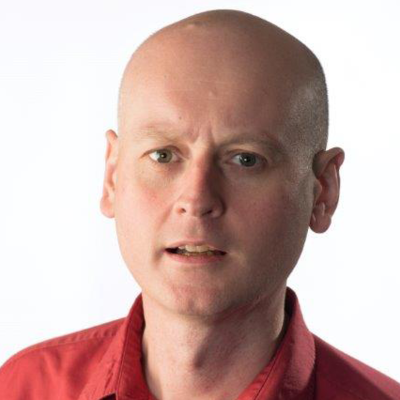
Matthew Brown (MB): I was quite inspired by what’s happening in Mondragon, which is in Spain, where they’d organized themselves in work around businesses. I was inspired by what happened in places like Italy, where in Bologna, they’d organized themselves in cooperatives there. But I was also inspired by Cleveland and the work they’ve done there to actually get the local public sector to purchase locally and get a living wage, and get other social and environmental benefits. The Preston model, it’s a collaborative approach, but its key features is we want a democratic economy, and we want to capture wealth, and create wealth, within the Preston-Lancashire community.
LF: After a failed attempt to stimulate private industry in Preston by attracting a major shopping chain to a new mall, Brown persuaded his colleagues to try the Community Wealth Building approach.
Instead of looking outside for rescue, they started looking within. They began by taking an inventory of how much money their locally rooted, so-called “anchor institutions” were actually spending and whom they were buying from.
Then they set about getting some of those spenders to commit to shifting more of their contracts to local contractors and paying a living wage. In 2018, I visited Brown in Preston to see how their new approach was working.
MB: In 2016/17 within Preston, there was 75 million pounds we’ve redirected to Preston-based suppliers. Across Lancashire there was 200 million. But there’s also the cumulative effect, which we haven’t really measured. We’ve been at this since 2012/13, so obviously we didn’t get to that amount straight away, we had to go bit by bit. You’re probably talking about 150 million in Preston that’s been redirected. But also job density, as I said, the amount of jobs available per working age person. That is one of the best in Lancashire as well, in the Northwest.
LF: In just its first ten years, the Preston project has registered 6 new worker-owned cooperatives. They include the UK’s first labor union co-op, a Cooperative Education Centre, and the first Community Land Trust in Central Lancashire. It also includes the Leighton Street Cooperative, which is owned and run on public land by the local Roma, or “traveler”, community. The number of real living wage jobs is up, increasing from 76% to 88% of all jobs from 2015 to 2022.
Preston has built the largest number of affordable housing units in all of Lancashire, and reduced child poverty. It’s not happened by chance. It’s been intentional, using government as the driver of change. Again, Brown
MB: We’ve still got huge inequality, and when you go up to the north of England that is amplified. We’re heading towards an American situation in which you’ve got a small few hundred of people who tend to have about 30 or 40% of the wealth of the economy, and I don’t believe you can have a democratic society if there’s that wealth inequality, because they tend to have a lot of influence over politics..
After the Preston model, what’s happened, there’s been a real push and real culture change to actually buy from local suppliers, support local businesses especially, get a real living wage, get apprentices, get environmental benefits. And there’s this collaboration across the majority of the local public sector which is really fascinating, and it’s bringing about results.
LF: Matthew Brown says the job is far from done, but the culture is shifting. He’s won re-election time and again, even in election cycles when his Party – the UK Labour Party – did terribly. Also, he’s no longer an outlier.
Neil McInroy is a Scotsman with a thick Scottish brogue and he’s Community Wealth Building Adviser to the Scottish government – the first government to have a position of that kind. He’s worked for years with politicians like Brown in Preston to democratize local economies, build local assets and create locally embedded wealth and living wage jobs.
Now, Neil’s working for the government of a country – his own, Scotland – on the biggest project yet. At the forefront is North Ayrshire, a region of some 130,000 people on Scotland’s west coast: a former hub of ship building that for the last few years has been particularly hard up. For a while, politicians here looked to tourism to address their problems. But that wasn’t working. Community wealth building offered a different paradigm.
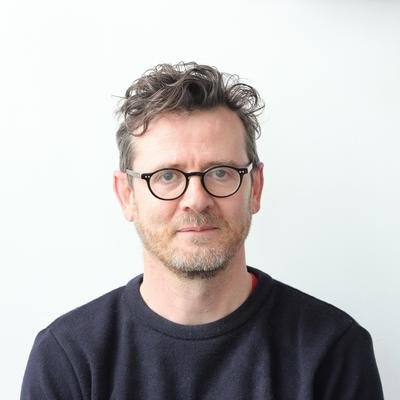
Neil McInroy (NM): North Ayrshire is a very typical sort of post industrial location on the west coast of Scotland and it suffered under two main problems that community wealth building addresses. The traditional regeneration, or revitalization as you call it in the U.S., that payments to poor people to solve their issues. That didn’t seem to really dig right into the problems that those people were facing. The problems of economic development, this trickle down economics, let’s get the factories in, let’s get the investment in and then we’ll have a land of milk and honey.
So both revitalization was failing, but also the traditional economic development model. And through enlightened leadership in North Ayrshire, we’ve seen comprehensive strategies to develop community wealth building across many fronts in terms of public spending, in terms of workforce and workplace advancements, in terms of land and property and ownership of land and property, in terms of different forms of finance and how we use them effectively in the new ecosystem. And also in terms of the progressive procurement and spending of public sector resources in that locality – a suite of activities which seek to address this enduring problem of wealth and the extraction of wealth.
LF: McInroy worked with the people of Ayrshire to study where government money was being spent, and how local land and buildings were being used. Was local government using local financial institutions and banks? Was it supporting democratic, unionized, or worker-owned businesses? Was it expanding green infrastructure? And were local people involved in decision-making beyond voting for politicians every few years?
To advance real community wealth building requires real community involvement, after all. That takes different forms in different places. In the Basque region of Spain where we began, after 60-70 years, local cooperation is pretty much baked into the culture.
In Scotland, something called the Economic Development Association ran a series of workshops all over the country, which led to all the local councils now developing Community Wealth Building plans of their own.
In Preston, it’s taken years for Matthew Brown to reach the point where regular residents are aware of the model that their city is getting famous for, but the Covid pandemic revealed just how important all the relationship-building they’ve been doing had been. Compared to workers elsewhere, a university study revealed that the government employees of Preston adapted far faster to working remotely under COVID and proved to be particularly resilient and connected and creative. And that’s no surprise. Again, Neil McInroy.
NM: Because there’s in many areas, including Preston, because there’s a high percentage of the economy is relational and cooperatives, and those other democratic enterprises. When COVID hit, there was an affinity to the place, to the people. And also there was not the huge extraction of profits that come from shareholder dividends in some of those enterprises. So in a sense they were more resilient to that particular shock.
And I think there’s lessons there, you know, that the type of economy we’re talking about is one that is in tune more with the people, in tune with the problems they face. And it doesn’t make the short term shareholder profit decisions, it makes interest for the longer term. So there’s something quite powerful about that community wealth building in terms of the spirit of what an economy is. And of course the word economy comes from the Greek word, oikonomos, keeper of the household. It’s something that should be close to our hearts, close to our homes. The economy, at the end of day, it’s a social construction, and we can construct it anyway we want. And we were just talking here about making an economy that works for us.
In fact, we need to go faster, for sure, because we’ve got a huge climate crisis, as well as the whole other series of injustices that are taking place, but we need to seize the moment. And I think what’s exciting about what’s happening is that we’re seeing administrations starting to pick up on this. As soon as we get that mainstream state apparatus supporting this, then we can go faster. So I think we’re at the beginning, but we’re just about to take off. That’s my hope.
LF: Neil McInroy is right. You’ll see references to building “Community wealth” popping up all over, even across the Biden-Harris administration in Washington D.C. The term’s been used by the Economic Development Administration, and the U.S. Department of Housing and Urban Development or HUD. And the idea has surfaced in federal legislation, like the CHIPS Act, which makes it easier for community-owned or democratically-owned businesses to get federal contracts.
Can we even imagine what our communities would look like if the trillions of dollars that the U.S. government spends every year were actually spent the community wealth building way?
Stay tuned. For The Bioneers, I’m Laura Flanders.

